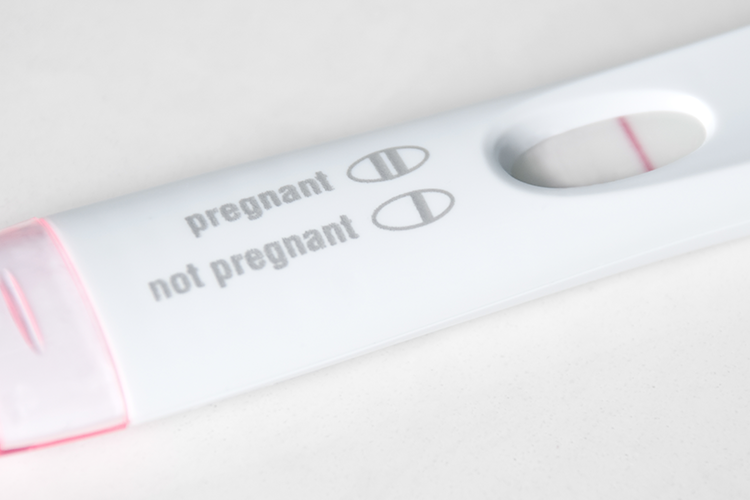Blog
Sugary drinks and fertility
 Sugary drinks really aren’t getting a good wrap. They are linked to increased risk of tooth decay, type 2 diabetes, cardiovascular disease, obesity, non-alcoholic fatty liver disease and other health issues, including the function of the reproductive system.
Sugary drinks really aren’t getting a good wrap. They are linked to increased risk of tooth decay, type 2 diabetes, cardiovascular disease, obesity, non-alcoholic fatty liver disease and other health issues, including the function of the reproductive system.
We have discussed implications of soft drink consumption during pregnancy in past, but what about before that? Could what we choose to consume affect our chances of falling pregnant in the first place?
The study
Researchers from the Fertility Medical Group in Brazil sought to assess if egg quality and pregnancy outcomes in those undergoing intracytoplasmic sperm injection (ICSI) were impacted by soft drink and sweetened coffee consumption.
The study analysed 5,548 oocytes (a.k.a eggs) from 524 women for at least one defect in shape prior to ICSI, followed by an assessment of egg quality on days 2, 3 and 5 of development.
In addition, nutrition and food frequency questionnaires were completed prior to ICSI treatment, including consumption of regular and diet soft drinks, unsweetened coffee, and coffee sweetened with sugar or artificial sweetener.
The results?
It was found that:
- Oocyte quality (and therefore viability) was negatively impacted by regular diet and soft drink consumption;
- Egg quality on days 2 and 3 were negatively impacted by regular diet soft drink consumption; and
- Implantation rate and the chance of successful pregnancy were decreased by regular diet soft drink consumption.
The researchers also found that those who added sugar to their coffee compared to those who did not had poorer egg quality.
But adding artificial sweeteners to the cup of coffee did not prove a better alternative! The lab-made sweet stuff negatively affected oocyte quality, egg quality on days 2 and 3, and decreased implantation and pregnancy rate, much like the diet soft drink results mentioned above.
Ugh.
Whilst there seems to be a relationship, it is considered too early to draw a direct cause and effect connection. Other factors must be considered, like overall diet quality and hormonal imbalance.
Whilst soft drink consumption (with and without caffeine) has been found to affect fertility in the past, it is thought people who regularly glug back soft drink are more likely to have poorer diet quality overall and increase their risk for insulin resistance, metabolic issues, and weight gain.
And those who choose diet drink alternatives may be doing so in an attempt to lose or manage weight.
For some, overweight or obesity may contribute to difficulty conceiving, due to the potential reproductive hormone imbalance associated with excess weight, including excessive estrogen levels and/or incidence of polycystic ovarian syndrome – a cause of female infertility that is becoming more common.2
The power of food
Whilst there are many factors like lifestyle and genetics that can impact your health and ability to conceive, what we choose to eat and drink truly has the power to heal or harm.
So, we may want to consider leaving the sugary drinks alone when attempting to fall pregnant, whether through assisted reproduction techniques or via the traditional method.
As a future mother, one must also consider the risk a poor diet poses for development of gestational diabetes mellitus (GDM).
Mostly eating a low glycemic diet full of whole foods can help avoid GDM development, and has been found to exert positive effects on insulin function and baby birth weight in those with the condition!3
So enjoy real food that is minimally processed like vegetables, fruit, healthy fats like those supplied by extra virgin olive oil, nuts, seeds and oily fish, and some whole grains, good quality meat, and dairy, and limit heavily refined foods, including trans-fats and those loaded with added sugar.
In this together
It is important to note that the ability to conceive isn’t all on the woman’s shoulders. It takes two to tango, right?
So, take note fellas – it is just as important for the man to care of his health, including limiting those sweetened beverages. Research has found that energy drink or 25% extra added sugar consumption (the equivalent of 3 cans of soft drink a day) is linked to low sperm count in men, and problems successfully conceiving.4;5
Perhaps most importantly, if you are in a partnership trying for a baby, sharing the attempt to eat and drink well provides much needed support for the mum choosing to do the same during pre-conception and throughout pregnancy. Needless to say, it will also promote good health for the future bub 🙂
By Angela Johnson (BHSc Nut. Med.)
References:
- Halpern, G. et al 2016, ‘Artificial sweeteners – do they bear an infertility risk?’, Fertility and Sterility, vol. 106, no. 3 pp. e263.
- Hatch, EE Wise, LA Mikkelsen, EM Christensen, T Riis, AH Sørensen, HT & Rothman, KJ 2012, ‘Caffeinated Beverage and Soda Consumption and Time to pregnancy’, Epidemiology, vol. 23, no. 3, pp. 393–401.
- Viana, LV, Gross, JL, & Azevedo, MJ 2014, ‘Dietary intervention in patients with gestational diabetes mellitus: a systematic review and meta-analysis of randomized clinical trials on maternal and newborn outcomes’, Diabetes Care, vol. 37, no. 12, pp. 3345-3355 11p.
- Ruff, JS, Suchy, AK, Hugentobler, SA, Sosa, MM, Schwartz, BL, Morrison, LC, Gieng, SH, Shigenaga, MK, & Potts, WK 2013, ‘Human-relevant levels of added sugar consumption increase female mortality and lower male fitness in mice’, Nature Communications, vol. 4, p. 2245.
- Wesselink, AK, Wise, LA, Rothman, KJ, Hahn, KA, Mikkelsen, EM, Mahalingaiah, S, & Hatch, EE 2016, ‘Caffeine and caffeinated beverage consumption and fecundability in a preconception cohort’, Reproductive Toxicology, vol. 62, pp. 39-45.











